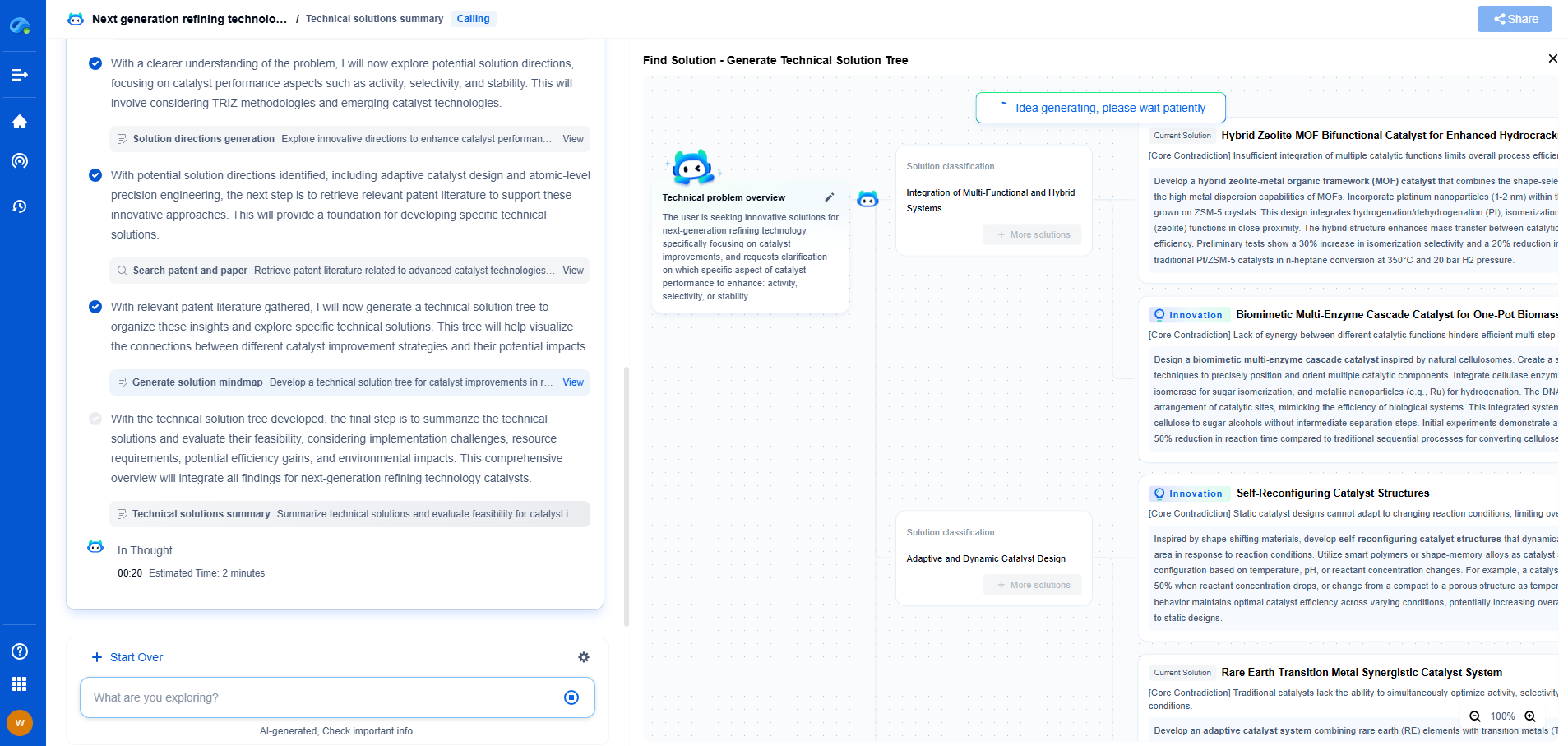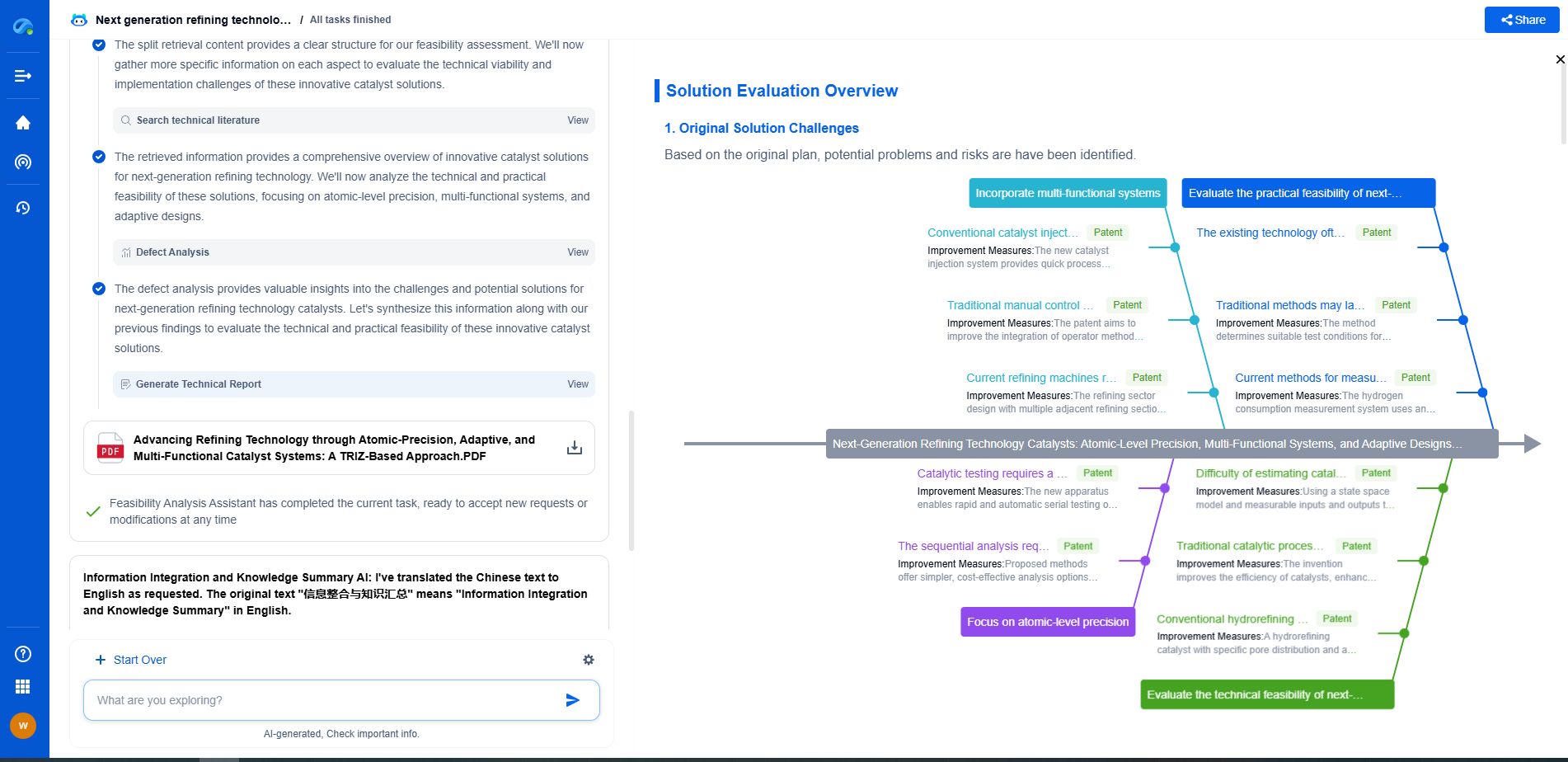What Is AI Fairness 360 (AIF360) and How to Use It?
JUN 26, 2025 |
AI Fairness 360 (AIF360) is an open-source software toolkit developed by IBM to help researchers and practitioners detect and mitigate bias in machine learning models. This comprehensive suite of tools aims to promote fairness, accountability, and transparency in AI systems, thereby fostering trust and ensuring that AI technologies are beneficial for all individuals, regardless of their demographic attributes.
AIF360 offers a robust framework for assessing bias in datasets and models. It provides a rich collection of metrics to quantify fairness and includes algorithms designed to mitigate discovered biases. By implementing AIF360, developers can better ensure that their AI solutions are just, equitable, and ethical.
The Importance of AI Fairness
In recent years, AI systems have become increasingly integrated into decision-making processes, impacting areas such as hiring, lending, and criminal justice. However, these systems can inadvertently propagate or even amplify existing societal biases if not carefully managed. AI fairness addresses this critical issue by ensuring that AI models make decisions that do not unfairly disadvantage any group or individual.
Bias in AI can stem from biased training data, flawed algorithms, or unintentional omission of relevant variables, among other factors. AIF360 helps identify and rectify these issues, promoting the creation of AI systems that serve all members of society equitably.
Key Features of AI Fairness 360
AIF360 includes several features that make it an indispensable tool for anyone concerned with AI fairness. One of its core components is a comprehensive set of fairness metrics that evaluate the degree of bias in a dataset or model. These metrics allow users to identify potential discrimination against particular groups based on race, gender, or other protected characteristics.
Additionally, AIF360 provides a selection of bias mitigation algorithms. These algorithms can be applied at different stages of the machine learning pipeline, including pre-processing, in-processing, and post-processing. This flexibility enables users to address bias using the approach that best suits their specific circumstances.
Using AI Fairness 360
Using AIF360 involves several key steps, which can be broadly categorized into assessing fairness, identifying bias, and implementing mitigation strategies.
Assessing Fairness: The first step involves utilizing AIF360's fairness metrics to evaluate the dataset and model. This assessment provides an initial understanding of any bias present, giving insight into how different demographic groups are impacted by the AI system.
Identifying Bias: Once potential biases are detected, users must analyze the results to determine the sources and implications of these biases. A detailed examination sheds light on whether the biases are data-driven, algorithmic, or systemic, allowing for more targeted interventions.
Implementing Mitigation Strategies: After identifying the sources of bias, users can apply AIF360's bias mitigation algorithms. Depending on the needs of the project, one or more strategies may be employed. These strategies aim to reduce or eliminate bias, improving the fairness and reliability of the AI model.
Best Practices for Implementing AIF360
To effectively utilize AI Fairness 360, it is essential to adopt certain best practices. Firstly, users should ensure they have a deep understanding of the data and context in which the AI system operates. This knowledge allows for more accurate identification of potential biases and effective application of mitigation techniques.
Collaborating with diverse stakeholders can also enhance the fairness of AI systems. By involving people from various backgrounds, organizations can gain a broader perspective on the impact of their AI models and make more informed decisions regarding fairness.
Finally, continuous monitoring and evaluation of AI systems are crucial. Biases can evolve over time, and ongoing assessment ensures that fairness is maintained even as the system and its environment change.
Conclusion
AI Fairness 360 is a vital tool for promoting fairness in AI systems. By providing reliable metrics and effective bias mitigation techniques, AIF360 empowers developers to create more equitable and trustworthy AI models. As AI continues to play a significant role in society, tools like AIF360 are essential for ensuring that technological advancements benefit everyone, regardless of their demographic characteristics.
Unleash the Full Potential of AI Innovation with Patsnap Eureka
The frontier of machine learning evolves faster than ever—from foundation models and neuromorphic computing to edge AI and self-supervised learning. Whether you're exploring novel architectures, optimizing inference at scale, or tracking patent landscapes in generative AI, staying ahead demands more than human bandwidth.
Patsnap Eureka, our intelligent AI assistant built for R&D professionals in high-tech sectors, empowers you with real-time expert-level analysis, technology roadmap exploration, and strategic mapping of core patents—all within a seamless, user-friendly interface.
👉 Try Patsnap Eureka today to accelerate your journey from ML ideas to IP assets—request a personalized demo or activate your trial now.
- R&D
- Intellectual Property
- Life Sciences
- Materials
- Tech Scout
- Unparalleled Data Quality
- Higher Quality Content
- 60% Fewer Hallucinations
Browse by: Latest US Patents, China's latest patents, Technical Efficacy Thesaurus, Application Domain, Technology Topic, Popular Technical Reports.
© 2025 PatSnap. All rights reserved.Legal|Privacy policy|Modern Slavery Act Transparency Statement|Sitemap|About US| Contact US: help@patsnap.com

